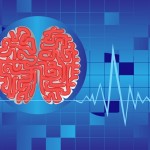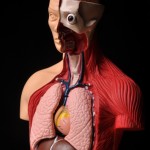If there were a pill that could make you feel sexy, energetic and joyful, while producing colorful visions and enhancing your sensory experience, would you try it? Millions of people have tried MDMA, commonly known as Ecstasy, to achieve these effects. But at the same time, they have exposed themselves to risks like heart problems, heatstroke, dizziness, muscle spasms, and seizures. On top of that, regular use of Ecstasy can alter your brain chemistry, causing depression, anxiety, dependence and addiction.
What Is Ecstasy?
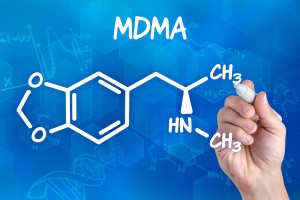
MDMA, or 3-4 methylenedixoymethamphetamine, was first developed in Germany in the 1900s. In the 1970s, psychiatrists in the US used the drug experimentally to help their patients feel more relaxed and enhance the benefits of psychotherapy. But in the mid-1980s, when the physical and psychological dangers of MDMA became apparent, the drug was made illegal.
MDMA is now classified as a Schedule I controlled substance, along with heroin, LSD and other drugs that have no accepted medical purpose. Using Ecstasy is not only hazardous to your health — it can put you at risk of arrest or even incarceration. However, Ecstasy continues to be one of the most popular designer drugs, especially among teens.
The University of Michigan reports that although Ecstasy use declined among middle school and high school students in the years 2000-2004, it began to increase again after 2005. Although Ecstasy is perceived as less dangerous than other illicit drugs, like cocaine or heroin, it poses a host of risks to the users physical and psychological health.
What Are the Effects?
On the streets, Ecstasy is known as a club drug, or a designer drug. Common slang terms include “Molly,” “X,” “the hug drug,” “lover’s speed” and “XTC.” Available in liquid form or in tablets — sometimes imprinted with cute symbols — Ecstasy is most often used by teenagers and college students at clubs, raves and concerts. Recreational users take the drug for the following effects:
- Feelings of warmth and emotional closeness
- Alterations in sensory experience and time perception
- Feelings of sexual attraction and desire
- Lowering of inhibitions
- Increased self-confidence
Because Ecstasy has multiple chemical properties, it falls under several categories. The drug is classified as a stimulant, a hallucinogen, and an empathogen (a substance that generates feelings of intimacy). It is also classified as an entactogen — a class of drugs that produces all of the above effects. Ecstasy stimulates the production of neurotransmitters like serotonin, which regulates moods and certain cognitive functions, and norepinephrine, which boosts energy levels and accelerates vital functions like heart rate.
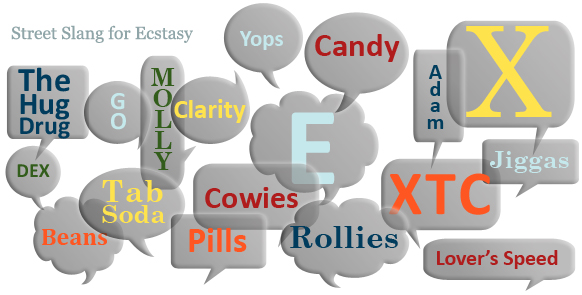
What Are the Dangers?
The same neurological effects that make Ecstasy so alluring also make it extremely dangerous. In the 1990s, the German scientific journal Nervenarzt warned that although MDMA was considered to be a “safe” drug on the club scene, it actually had dangerous effects on the body and mind, including:
- Potentially fatal hyperthermia, or overheating of the body
- Severe dehydration
- Breakdown of muscle tissue
- Liver and kidney toxicity
- Blood-clotting problems
- Chronic anxiety
- Depression
In addition to these risks, Ecstasy can raise your heart rate and blood pressure, interfere with sleep, and affect your appetite. Ecstasy can cause unpleasant or terrifying hallucinations and distortions in sensory experience. Because Ecstasy affects the brain’s production of serotonin, long-term use may lead to mood swings, depression, and problems with learning or memory.
Ecstasy lowers inhibitions, which means that even a casual user is exposed to risks like unprotected sex, sexually transmitted diseases, polydrug abuse, and driving while intoxicated. The National Highway and Traffic Safety Administration notes that in a driving simulator study, a single dose of Ecstasy made drivers more willing to take risks. In addition, that single dose affected the drivers’ information processing speed, their overall cognitive performance, and their ability to control a vehicle. Higher doses only increase the risk of a collision, injury or fatality.
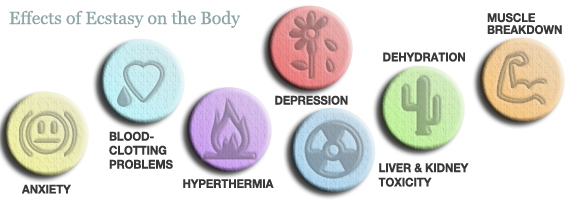
Can I Get Addicted to Ecstasy?
For years, recreational Ecstasy users believed that the drug was not addictive. While Ecstasy may not hold the same addictive power as heroin or cocaine, its effects on serotonin levels can produce symptoms of physical and psychological dependence, such as:
- The need to take more MDMA to get the same effects (tolerance)
- The need to take Ecstasy just to feel physically or psychologically normal
- Failure to stop using Ecstasy, in spite of a strong desire to do so
- Feelings of guilt, depression or remorse after using Ecstasy
According to Brown University, a study of teens and young adults who used Ecstasy found that 34 percent were actively abusing the drug, and nearly 45 percent could be considered dependent.
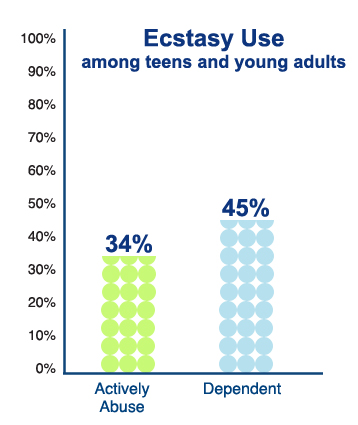
Recognizing the Signs of Addiction
How can you identify signs of Ecstasy abuse in someone close to you? The following changes in appearance, attitude and behavior may provide clues:
- Giddiness or euphoria
- Changes in sleeping patterns
- Confusion or forgetfulness
- Loss of appetite or weight loss
- Nausea and vomiting
- Reports of muscle pain
- Isolation from family and friends
- Loss of interest in favorite activities
Traditionally, Ecstasy has been used in underground social settings, like concerts or nightclubs. But today, users have started to take the drug in a wider variety of settings, including the privacy of their homes. Just because a teenager isn’t staying out all night or hanging out at clubs doesn’t mean that he or she isn’t experimenting with Ecstasy.

Where Can I Find Help?
If someone you care about has a potential problem with this drug, it’s crucial to seek help to avoid serious health problems, accidental injuries, psychological disturbances, and legal trouble. The addiction treatment specialists at Axis are here to answer your questions and provide the support you need to get help for yourself or a loved one.
Located in Indian Wells and Los Angeles, CA, Axis Treatment Centers provide inpatient and outpatient recovery services for individuals in search of a drug-free life. We offer a full spectrum of resources, including detoxification, intensive psychotherapy, 12-step groups, family counseling, holistic therapies, and aftercare services. Call our toll-free number today to learn about our personalized treatment plans for drug and alcohol rehab.
Have Questions?
Have Questions?
Call 8667373570
Speak with our admissions counselor



